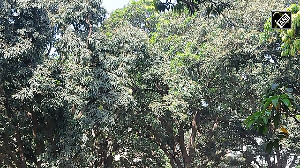The number of cases being admitted and investigated by the Competition Commission of India has fallen drastically in recent years, reports Subhomoy Bhattacharjee.

There has been an interesting reversal of trend at the Competition Commission of India. The number of its orders upholding violations since it was born in 2009-10 has flipped.
From finding questionable business activities in nearly 60 per cent of the cases investigated by it back then, the competition regulator now drops almost 64 per cent of the cases that come to it.
For instance, in 2010-11, there were 70 cases where it was convinced there was a good enough reason to ask the office of director general to investigate the charges. Jump to the statistics, five years later.
In 2014-15, CCI “closed the matter” in 73 of the cases reported to it. The trend holds true for companies across sectors.
Of the total number of “specific information” or cases received by CCI so far, 20 per cent was from the real estate sector. This is more than the number of cases from the financial sector, media and pharmaceuticals put together.
However, while the number of cases from the real estate sector has increased every year, those the Commission has moved for investigation as possible anti-competitive behaviour have fallen.
The CCI highlights two reasons for this turnaround: It “closes relatively more cases” at the initial stage itself instead of taking them all the way through to the investigation stage.
The other reason, it says, is that a large number of cases that come up to it now pertain to violations of consumer rights and are not necessarily anti-trust activities.
“The reasons I would hold are the maturing of the Commission,” says its former-chairman Ashok Chawla. He should know as he has remained at the helm of CCI for the better part of these years. In the earlier years, there was almost an evangelical zeal to pick up all cases, he says.
“There was a feeling that we must be proactive; that we are a body set up for consumer redress,” he adds.
It led to a spike in cases where CCI did go on to establish that there was a contravention of competitive behaviour. The highest number of such cases was in 2011-12 at 29; quite logical since the year before CCI had asked its investigation wing to examine 70 anti-trust activities. But since then such orders have dipped to an average of 20 a year.
Obviously, the earlier approach of focusing on consumers has given way to a more realistic appraisal of what constitutes anti-trust behaviour.
The latest annual report of the regulator, yet to be tabled in Parliament, shows the trend to let industry perform without a threat of a rap on the knuckles has deepened.
The CCI is born of an established axiom that the economy performs best when entrepreneurs compete more.
“An economy, which is an amalgam of enterprises, performs the best only if every enterprise performs the best. This is possible only if it has full economic freedom, it pursues its own interest aggressively and it does not hinder freedom of other enterprises,” says the Commission’s annual report.
The earliest of such Commissions worldwide was the Federal Trade Commission of the United States set up in 1912.
Too much work
To ensure competitive behaviour among companies, when CCI members receive any credible piece of information, according to the rules of the Competition Act of 2002, all of them have to sit together on a bench to adjudicate on an order.
This judicial role of CCI is distinct from the functioning of other regulators like the Securities and Exchange Board of India where each full-time member reserves the right to dispose of a case with the relevant monetary penalties.
To create space for CCI members to devote more time on the cases before them, the regulator has had to make a choice. It has led to a large number of cases of anti-competitive behaviour being dismissed at an early stage when the admissible evidence is thin to begin with.
In other words, instead of asking the investigation wing headed by director general to build up evidence, it now stresses for aggrieved parties to come up with evidence at the first stage itself.
The reason for this stricter screening process is straightforward. The anti-trust regulator itself acknowledges this problem.
The Commission’s annual report shows even after weeding out 299 of the 553 cases that were brought before it since 2009-10, the pace of investigation by the director general in the remaining cases has slowed. In 2010-11, investigations were completed in 66 cases. Five years later, this number has slipped to 34 annually.
This is attributable to the paucity of resources with the director general’s office. Under the Competition Act, this office is a dedicated arm of CCI but, at the same time, it maintains an arm’s length from the competition regulator.
The presumption is that the judge, in this case CCI, and the prosecutor, which is the director general, cannot be rolled into the same organisation.
The director general’s office has just 20 people on board. It was 13, a year before. The Commission itself, including all support staff, has 109 people. The US Federal Trade Commission had 1,131 people on board on September 2013.
Even after discounting for the size of the respective economies, the difference is remarkable. In April, CCI had advertised for filling up 26 vacancies in one go. However, because these are to be filled on deputation basis from within the government, the Commission has not received much of a response so far.
Cases pile up
The rising level of pendency, the report consequently notes, reflects two concerns. The first “reflects the inadequate staff strength in the office of the director general”. For a young regulator, the number of cases pending has gone up to 61 in just one year.
Vijaya Sampath, chairperson of Ficci’s corporate laws committee and senior partner at law firm Lakshmikumaran and Sridharan, too, confirms the drop in number of investigations.
“Earlier, CCI used to (take up) many cases for investigation. Now it asks the parties to submit documents and evidence and it hears cases more on merit in the first phase itself instead of first establishing whether a prima facie case exists.”
The second concern, though, is more significant. It reflects the increasing complexity of the cases coming to the Commission’s notice. Chawla makes another point in this context. He says as CCI has to decide on each matter with all members on board, there is a natural scarcity of time the Commission has to examine each case.
“It makes sense that our going after many of them (cases) will not help the industry as it will fritter away the resource we have,” he adds.
Whether CCI would decide to investigate or would pass an order to drop the case ab initio is of deep import to industry. The cases of perceived anti-competitive behaviour among the original equipment manufacturers in automobile industry, those of taxi aggregators or of cartel in pricing of cement by the cement manufacturers have become landmark decisions which the anti-trust regulator has handed down in the past few years.
As the economy has matured in the past few years, the pace of mergers and asymmetrical growth of companies has soared. For example, just look at the e-commerce space. To deal with this growth, CCI has had to refine its sense of what works as competition.
Photograph: Amit Dave/Reuters













 © 2025
© 2025